The Great Smoky Mountains, straddling the border of Tennessee and North Carolina, beckon to travelers with their awe-inspiring landscapes, diverse wildlife, and endless opportunities for outdoor adventure. This majestic mountain range, part of the larger Appalachian chain, is home to the Great Smoky Mountains National Park, the most visited national park in the United States. With its lush forests, cascading waterfalls, and serene valleys, the Great Smokies offer a perfect escape for nature lovers, hikers, and those seeking a peaceful retreat in the heart of Tennessee.
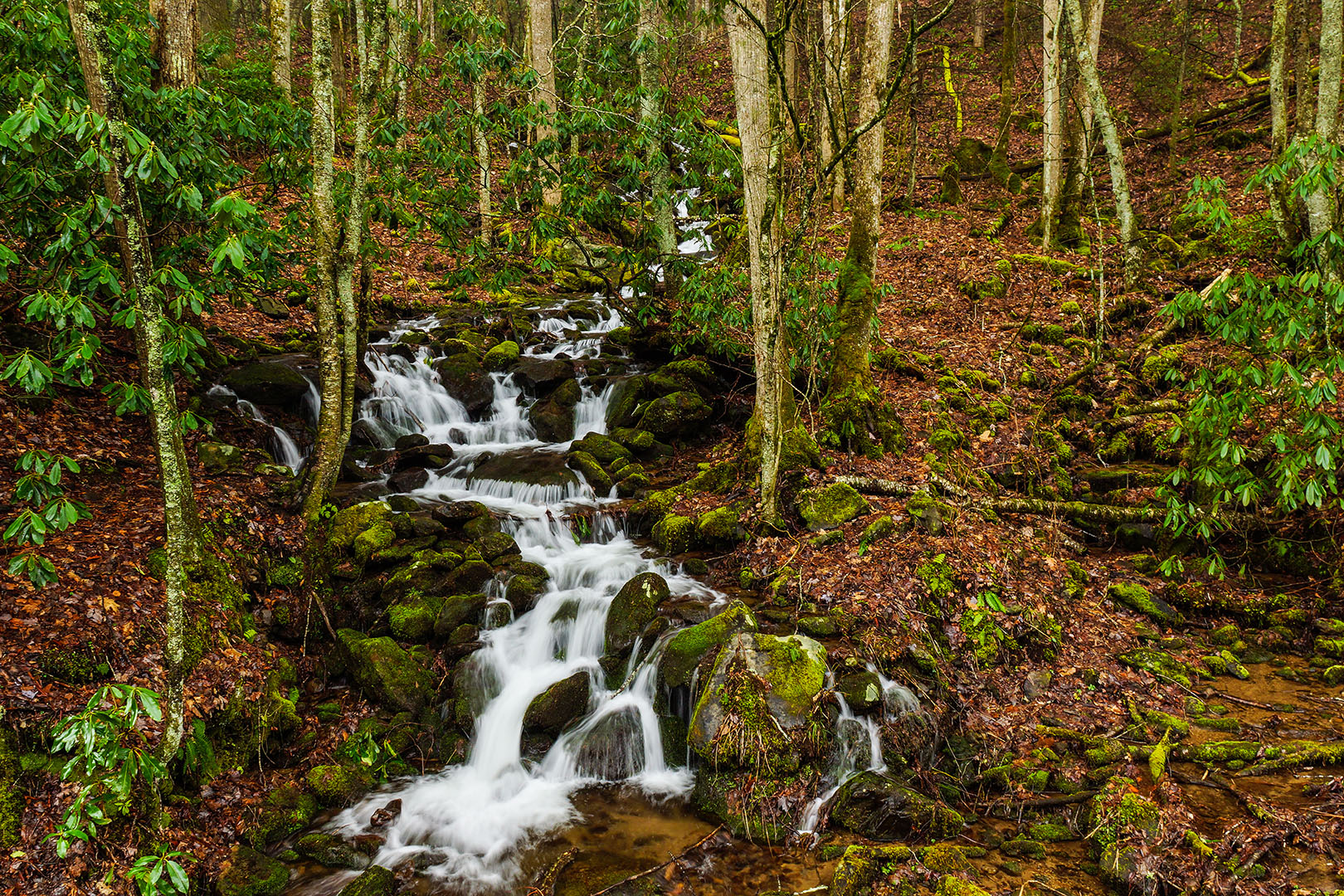
Hiking and Scenic Drives
The Great Smoky Mountains National Park is a hiker’s paradise, offering over 800 miles of trails that cater to all skill levels and interests. Beginners and families can enjoy short, easy trails like the Laurel Falls Trail, a 2.6-mile round trip hike that leads to an impressive 80-foot waterfall. The Grotto Falls Trail is another popular option, as it allows hikers to walk behind the cascading water for a unique perspective.
More experienced hikers seeking a challenge can tackle trails like the Alum Cave Trail, a 5.5-mile round trip hike that features stunning views of the surrounding mountains and unique geological formations. The trail culminates at the Alum Cave Bluffs, an impressive shelter of rock that towers overhead. Another strenuous yet rewarding hike is the Mount LeConte Summit, accessible via five different trails. The most popular route to the Summit is by extending The Alum Cave Trail to an 11-mile round trip journey to the summit with panoramic views of the Great Smoky Mountains.

For those interested in exploring the park's rich history and culture, the Cades Cove Loop is a must-visit. This 11-mile one-way loop road takes visitors through a picturesque valley, dotted with historic buildings, including cabins, churches, and grist mills. The loop also offers excellent opportunities for wildlife viewing, especially in the early morning or late evening when animals are most active.
Another scenic drive not to be missed is the Newfound Gap Road, a 31-mile stretch that crosses the border between Tennessee and North Carolina. This road offers spectacular views of the mountains and valleys, with several pull-offs and overlooks along the way. Visitors can stop at the Newfound Gap parking area, which marks the state line and provides access to the Appalachian Trail.
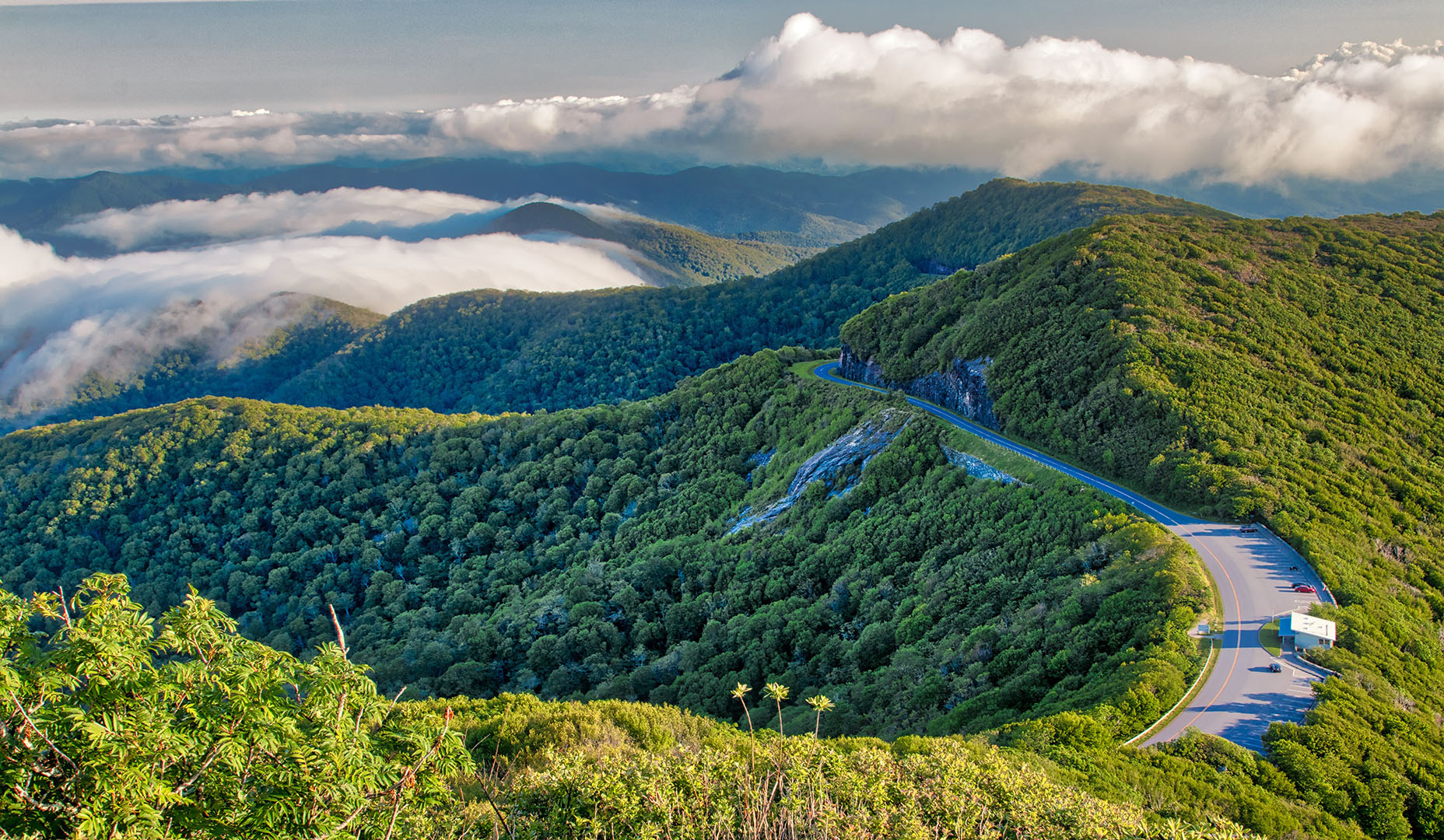
The Roaring Fork Motor Nature Trail is a 5.5-mile one-way loop that offers a more intimate exploration of the park's natural beauty. This narrow, winding road takes visitors through a lush forest, past cascading streams and waterfalls, and offers glimpses of historic cabins and mills. The trail also features several hiking opportunities, including the Rainbow Falls Trail, which leads to the park's highest single-drop waterfall.
While not entirely within the Great Smoky Mountains National Park, the Blue Ridge Parkway is a 469-mile route that connects the park to Shenandoah National Park in Virginia, offering stunning views of the Appalachian Mountains along the way. Visitors can access the parkway from the southern end of the park, near Cherokee, North Carolina, and embark on a memorable journey through some of the most beautiful landscapes in the eastern United States.
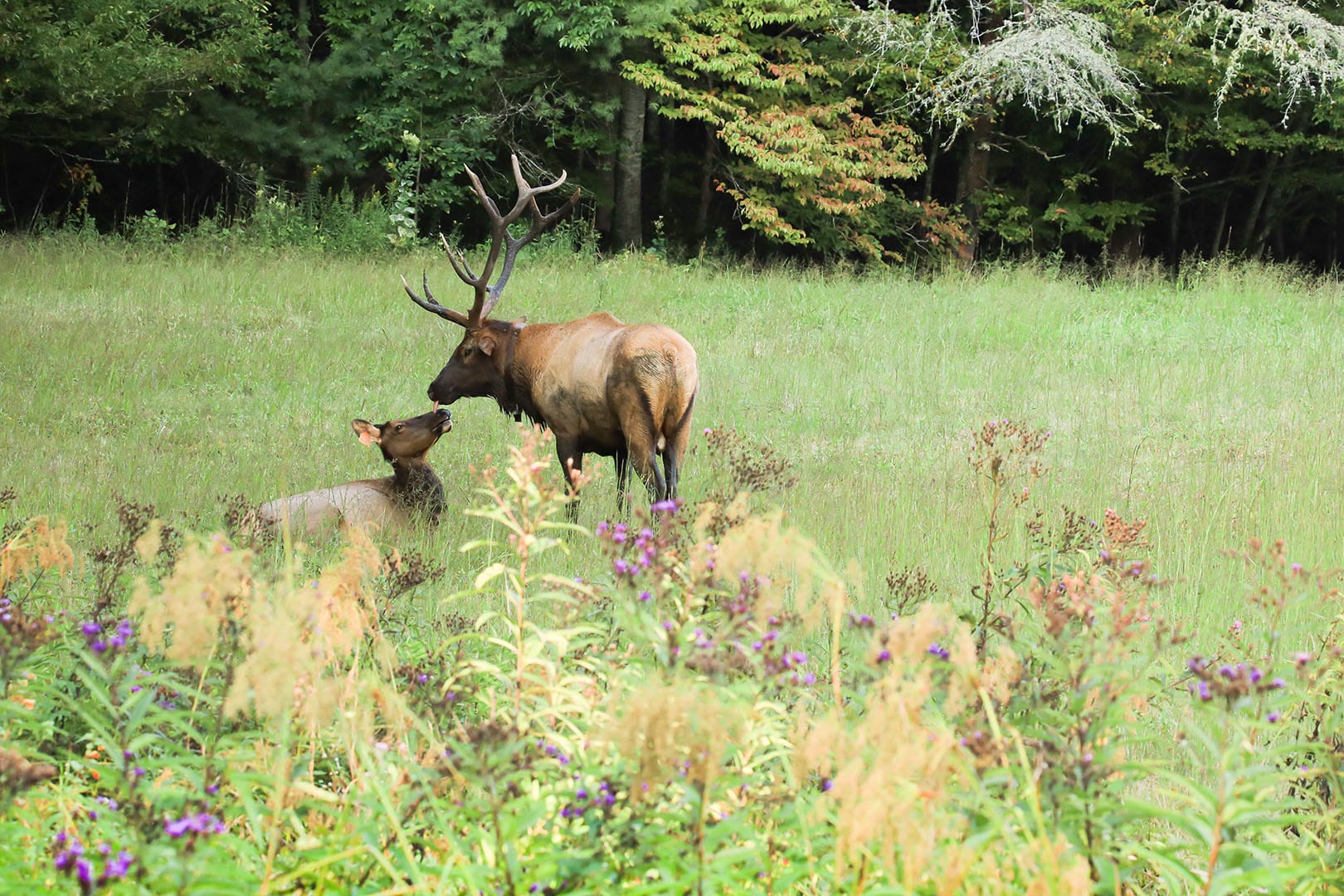
Wildlife Viewing and Nature Experiences
The Great Smoky Mountains are renowned for their incredible biodiversity, making the park a prime destination for wildlife enthusiasts and nature lovers. With over 65 species of mammals, 200 species of birds, and numerous reptiles, amphibians, and invertebrates, visitors have the opportunity to observe a wide array of creatures in their natural habitats.
Black bears are the most iconic residents of the park, with an estimated population of around 1,500 individuals. Visitors can increase their chances of spotting these majestic animals by exploring areas like Cades Cove or the Roaring Fork Motor Nature Trail, especially in the early morning or late evening. Another popular wildlife viewing opportunity is the park's thriving elk population, which was reintroduced to the region in 2001. The best place to spot elk is the Cataloochee Valley, particularly during the fall mating season.
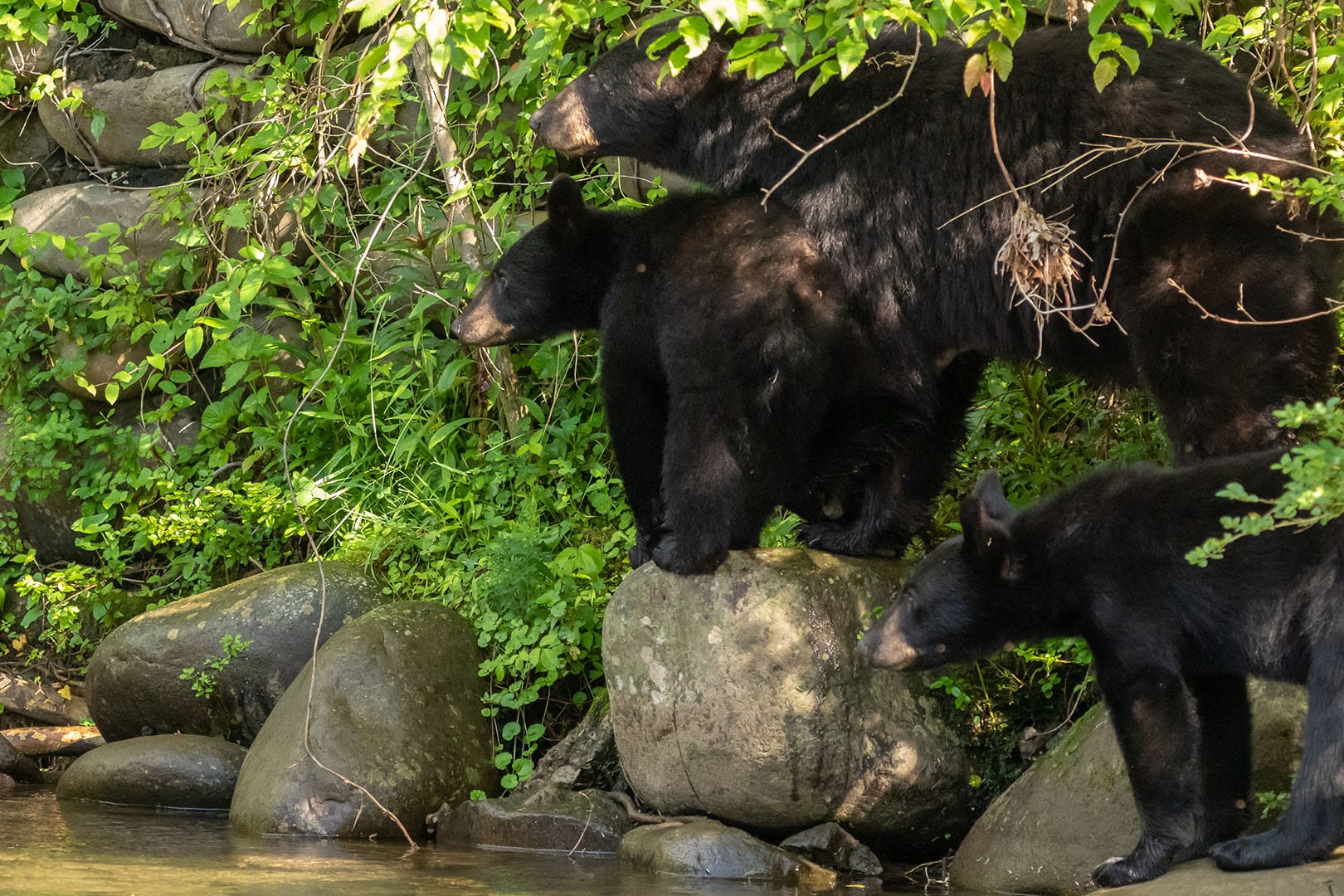
In addition to mammals, the Great Smoky Mountains are home to a diverse array of birds, including colorful species like the scarlet tanager and the peregrine falcon. Birdwatchers can explore the park's various habitats, from high-elevation spruce-fir forests to lower-elevation deciduous woods, to observe a wide range of avian life.
Beyond wildlife viewing, the park offers numerous opportunities for immersive nature experiences. Guided ranger walks and talks cover topics like plant identification, animal behavior, and the park's geological history. Visitor centers, such as Sugarlands and Oconaluftee, provide exhibits, films, and educational programs that offer deeper insights into the region's natural and cultural heritage. Visitors can also participate in citizen science programs, assisting park biologists in monitoring various species and ecological processes, fostering a greater sense of connection to the natural world.
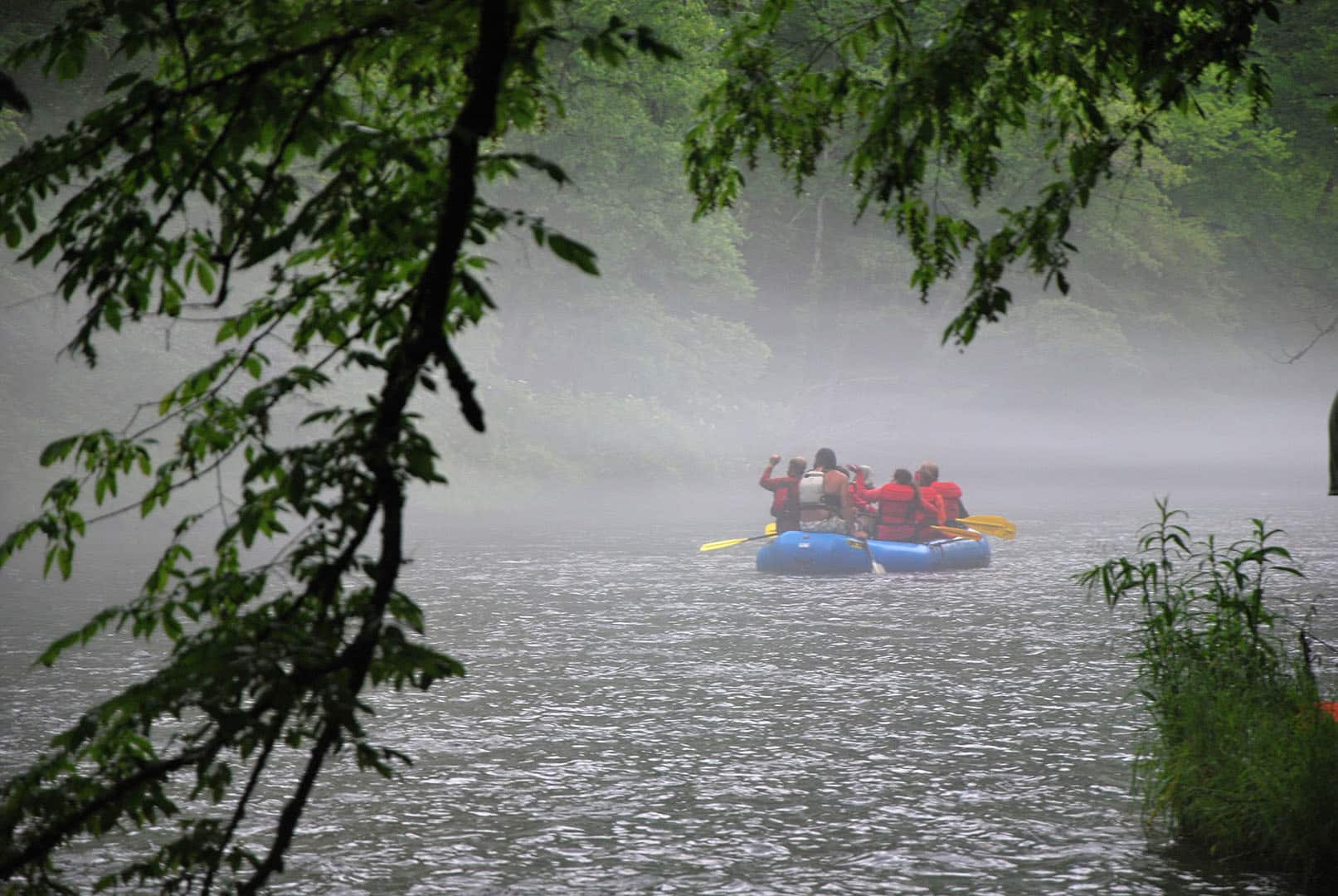
Outdoor Recreation
In addition to hiking and wildlife viewing, the Great Smoky Mountains offer a wide array of outdoor recreational activities. Fishing enthusiasts can enjoy casting their lines in the park's abundant streams and rivers, home to various trout species. Horseback riding is another popular pastime, with guided tours available for riders of all experience levels. Thrill-seekers can take on the region's whitewater rafting routes, ranging from gentle floats to exhilarating rapids. With so many options available, visitors can easily tailor their outdoor adventures to their interests and skill levels.

Local Attractions and Culture
While the natural wonders of the Great Smoky Mountains are the main draw, the surrounding region also offers a variety of local attractions and cultural experiences. The nearby towns of Gatlinburg and Pigeon Forge are known for their unique shops, restaurants, and entertainment venues. Visitors can explore attractions like Dollywood, a theme park celebrating Appalachian culture and music, or the Ripley's Aquarium of the Smokies, home to fascinating marine life. The region also showcases its rich Appalachian heritage through local music performances, craft studios, and traditional mountain cuisine.

Festivals and Special Events
The Great Smoky Mountains region hosts a variety of festivals and special events throughout the year, celebrating the area's rich culture, history, and natural beauty. The Smoky Mountain Winterfest transforms the towns of Pigeon Forge, Gatlinburg, and Sevierville into a twinkling winter wonderland. Spring brings the annual Wildflower Pilgrimage, a week-long event showcasing the park's incredible diversity of wildflowers through guided hikes, workshops, and presentations.
Summer events include the Smoky Mountains Tunes & Tales, featuring costumed storytellers, musicians, and artisans entertaining visitors in downtown Gatlinburg, and the Great Smoky Mountains Hot Air Balloon Festival in Townsend, offering colorful hot air balloons, live music, and crafts. Fall is a time to celebrate Appalachian heritage with events like the Smoky Mountain Harvest Festival and the Rotary Crafts Fair, showcasing traditional music, dance, crafts, and food. The stunning fall foliage also serves as a backdrop for events like the Smoky Mountains Storytelling Festival and the Gatlinburg Craftsmen's Fair.
Throughout the year, the towns surrounding the Great Smoky Mountains host various other festivals and events, such as the Sevierville Bloomin' BBQ & Bluegrass Festival, the Pigeon Forge Patriot Festival, and the Gatlinburg Fourth of July Midnight Parade.

Accommodations and Camping
When planning your visit to the Great Smoky Mountains, consider staying at the Wyndham Club property. Conveniently located near the park and popular attractions, yet tucked away from the bustling towns of Pigeon Forge and Gatlinburg, this property offers a peaceful retreat with comfortable accommodations and excellent amenities. Guests can unwind after a day of outdoor exploration and enjoy the on-site dining and recreational facilities.
Camping is also a popular option in the Great Smoky Mountains National Park. The park offers ten front country campgrounds, which are accessible by car and feature amenities such as restrooms and fire rings. These campgrounds range from more developed sites like Cades Cove and Elkmont, which offer reservations and can accommodate RVs, to more rustic sites like Abrams Creek and Balsam Mountain, which are first-come, first-served and better suited for tent camping.

For adventurous travelers who want to explore the park’s remote wilderness, The Great Smoky Mountains National Park offers over 100 backcountry campsites and shelters. Backcountry camping does require advance planning and a permit and can only be accessed by hiking or horseback riding. These sites offer a true wilderness experience, with no amenities and a chance to immerse yourself in the park's stunning natural beauty.
For those who prefer a mix of comfort and outdoor adventure, the park also offers “front country” campgrounds with more amenities. The Cades Cove Campground is a popular choice, as it's located in the heart of the scenic Cades Cove valley and offers easy access to hiking trails and historic sites. The Smokemont Campground is another well-equipped option, situated near the Oconaluftee Visitor Center and the park's eastern entrance.
The Great Smoky Mountains of Tennessee offer a perfect blend of outdoor adventure, serene beauty, and cultural richness. With its stunning landscapes, diverse wildlife, and endless recreational opportunities, this region captivates the hearts of nature lovers and adventure seekers alike. By grabbing a resort rental deal at the conveniently located Wyndham Club property, travelers can easily explore the park and surrounding attractions while enjoying a peaceful retreat. Whether you're hiking scenic trails, observing wildlife, or immersing yourself in local culture, the Great Smoky Mountains promise an unforgettable experience.


